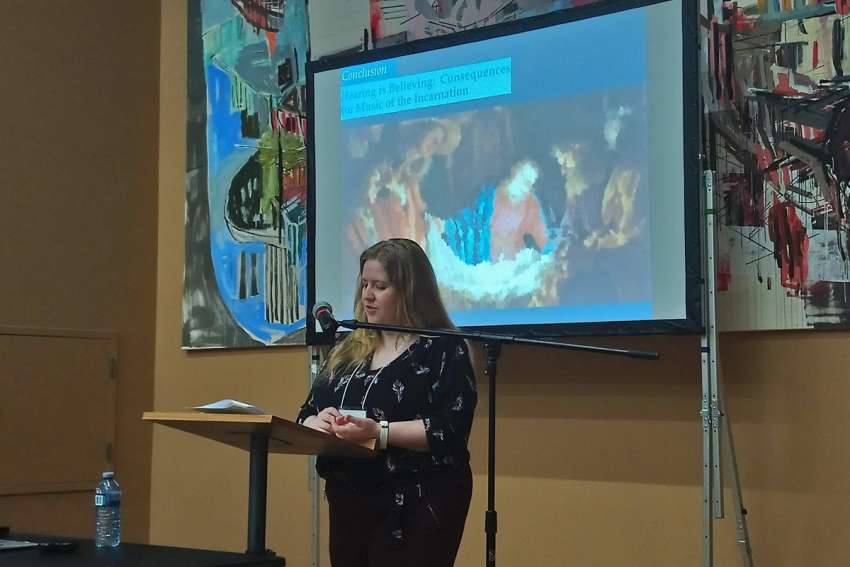Titled "Music and Christian Spirituality," the continuous learning course is being taught by Dr. Christina Labriola, a scholar of music and theology as well as music director at St. Michael’s College. Returning to her alma mater to instruct on Sept. 21, Labriola hopes the inaugural year of the program will provide different ways to experience and reach out to God through various musical means.
“Music as a phenomenon is something that engages us spiritually, emotionally, intellectually and even physically. There is a sense of the possibility of a holistic interaction or encounter with the divine that's possible through music,” she said. “This course came from my own experience and knowledge of music making and of being a lover of music. I want people to explore those moments in which music becomes a place of encounter with God revealed in Jesus Christ.”
Music and Christian Spirituality will be offered on the third Saturday of each month through March (with no class in December). Across the six sessions, participants will engage in lectures, open discussions and practical analysis of various music pieces in relation to each week’s topic. The course is dual-delivery, with in-person classes being held inside Regis College’s St. Joseph Chapel while those further away can attend via ZOOM.
Music and Christian Spirituality is one of three current offerings from Regis' Windows on Theology series, which provides non-credit courses on topical issues in Scripture, Church history, pastoral studies and theology to the general public.
Labriola has developed lectures for five main themes she feels relate strongly to aspects of the musical experience which inform the way music inspires people on a spiritual level: sacramentality, incarnation, beauty, contemplation and discipleship.
“Sacramentality relates to music in that music brings together matter and spirit, it functions as a symbol of God's generosity for us and it affirms the gift of being alive. Incarnation affirms that music exists within the realm of the human body and senses and that as God chose to be with us in this most intimate manner in the incarnation of Christ, I argue that experiencing music helps us to understand this interrelatedness,” she explained.
“We will explore from a religious dimension that beauty and especially musical beauty helps to direct us towards the beauty of God. For contemplation, we talk about the receptive spirit of listening and receiving the word and how we can see this played out in musical experience.
"Finally, discipleship is what we are called to do as well through our music-making, acts of charity and service. We have received the gift of Christ's presence within us, and now we are asked to give it back to the world, to live for others and to make our lives beautiful through that.”
Course material will also pull from Labriola’s recently published book The Sacramentality of Music.
With music covering various genres, cultures and distinctive styles, the course first makes clear the importance of music in the liturgical sense, with Labriola describing it as a “beautiful meeting place” to encounter God during Holy Mass.
That sentiment is shared by John Paul Farahat, director of music and principal organist of St. Basil’s Parish at the University of St. Michael’s College. He believes that through serving the liturgy, music cements itself as a central aspect of the Catholic faith.
“Music in liturgy lifts the hearts and minds of the faithful heavenward. In the face of sheer beauty, whether it be through a congregational hymn, a choral motet or the sound of the organ or other instruments, we cannot help but transcend ourselves and draw closer to the Creator,” Farahat said in an email. “When music serves the liturgy, we are able to better understand our faith, and enter more fully into worship.”
Labriola confirmed that the course is interested in reaching beyond the exclusive context of the liturgy as it looks to explore the ways that music, as a human phenomenon, is something that God uses to help us encounter the five aforementioned themes.
The course costs $160 and is still open for registration at https://regis.app.neoncrm.com/np/clients/regis/eventRegistration.jsp?event=1070&.


